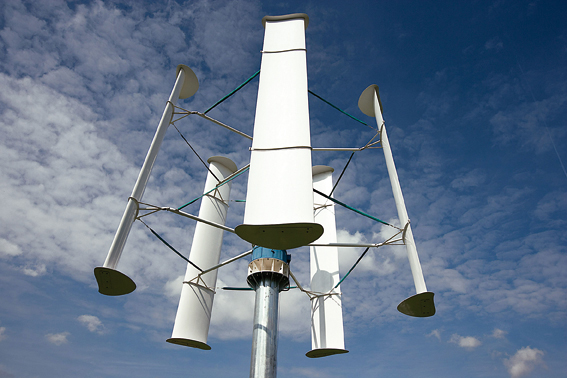I attended Renewable Expo India, an international event in Delhi held from 6 to 9 November 2012. I wanted to learn more about the international renewable energy market, policy actions and current topics. In addition, I was curious to see what Finland looks like from India.
It was intriguing to learn about the measures India has taken to promote renewable energy. The country has ambitious goals for increasing solar energy, wind power and bioenergy, and for improving its electricity networks. Its national mission is to increase the production of solar energy alone by 22 GW over the next ten years. The federal government and the states of India have a variety of incentives, including feed tariff auctions, investment subsidies, purchase obligations and green certificates.
The subsidies are largely funded at the expense of the coal industry. The most significant incentives are targeted at solar power plants outside the power supply network. Solar energy has already been used to provide 100,000 villages with lighting. Over the next few years, the goal is to bring electricity to an additional 600,000 villages. In addition to reducing poverty and pollution, India uses renewable energy to create new jobs and improve its energy self-sufficiency. Its national oil bill increased by 40 percent to USD 140 billion in 2012 alone. It is very clear that India has a dynamic and rapidly growing cleantech market.
Cleantech Finland gained visibility at the event with its stand and special event, as well as with an extensive feature in the exhibition magazine. Unfortunately, Finland was not mentioned at other events or in discussions. Instead, local entrepreneurs frequently referred to countries such as Germany, Spain, Italy and the United States. It was evident that their expertise in renewable energy and clean technology was highly valued because of practical experiences and investments. Sweden was lauded for its eco-city ideas and investments.
Finland has a great deal of competence and export potential. For example, we have top expertise in hybrid energy, which combines various sources of renewable energy through intelligent electricity network solutions, ICT applications and electricity market competence. The growth and success of Finnish companies in the field is being hindered by the difficult or practically non-existent domestic market and a lack of references. It would be easier for Finnish businesses to enter the export market and participate in demo projects if they had customers, cash flow and reference projects in their home market.
According to The Blue Book by Pekka Himanen and his international research team, Finland is currently wasting much of its export potential. Competitiveness indicators show that Finland is one of the top countries in the world, but its actual competitive ability is much weaker than the indicators suggest. Finns should make much better use of global value networks, preferably through an extensive joint project that involves international export organisations as well as national measures to support new businesses aiming for global growth – in the same manner as in the Silicon Valley.
India and Finland are now preparing to collaborate in clean technology. This would be a perfect opportunity to include Finnish hybrid energy start-ups in the process and explore from their perspective how export services could facilitate their growth and internationalisation. Moreover, the focus in exports should shift towards market and customer orientation: instead of technology and Finland, a relatively unknown country, we should sell tried-and-tested solutions customised to the target market. In addition, we could make use of the progress in Sweden and Denmark by speaking of Cleantech Nordic rather than Cleantech Finland.
Karoliina Auvinen, Senior Lead, Eco-Efficiency
Tel. +358 294 618 299
Karoliina Auvinen, M.Sc. (Tech.), is Senior Lead of Eco-Efficiency at Sitra. She is currently focusing on the development of user-friendly local energy services and the related market environment. Her other specialities include innovative and energy-efficient mobility and transport solutions and eco-efficient business solutions.
